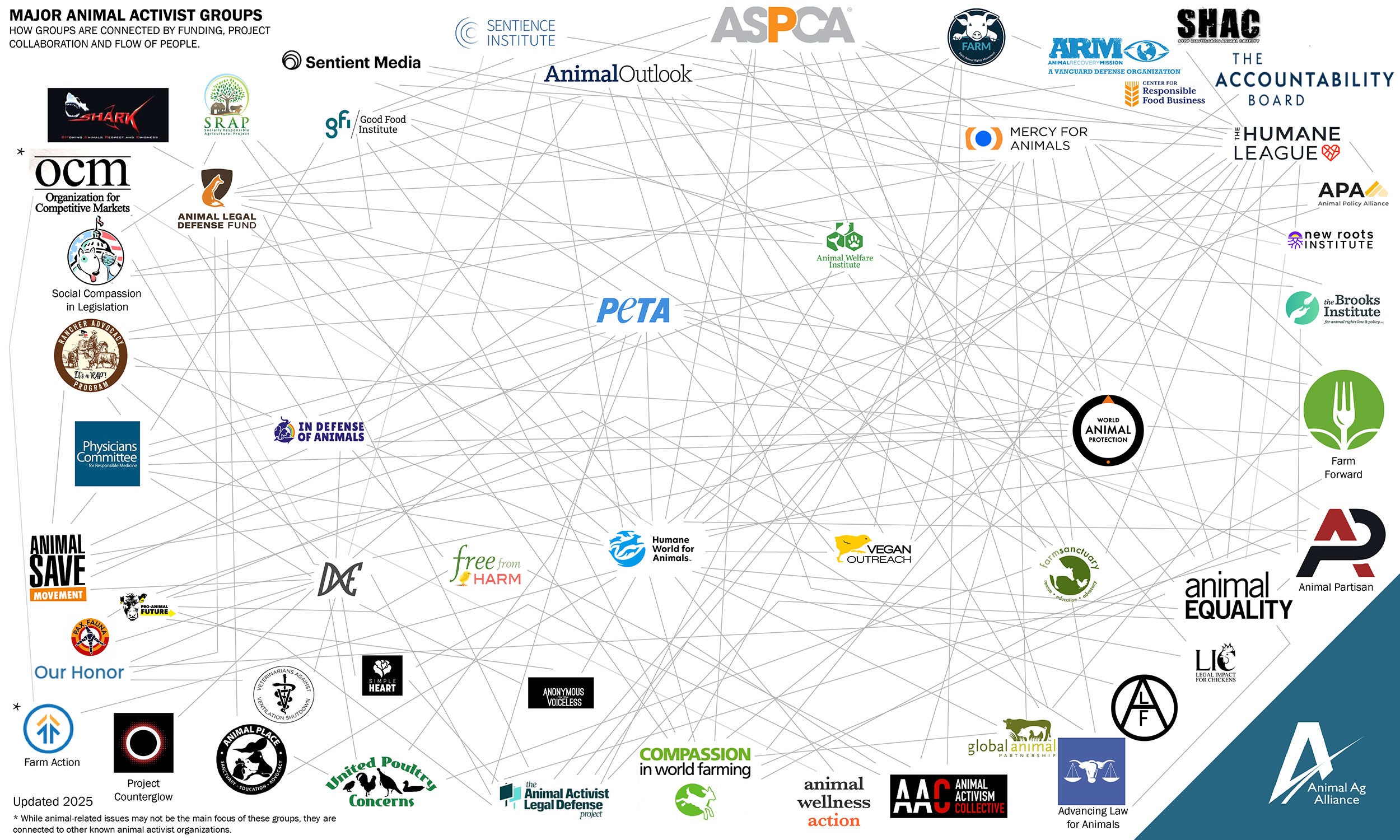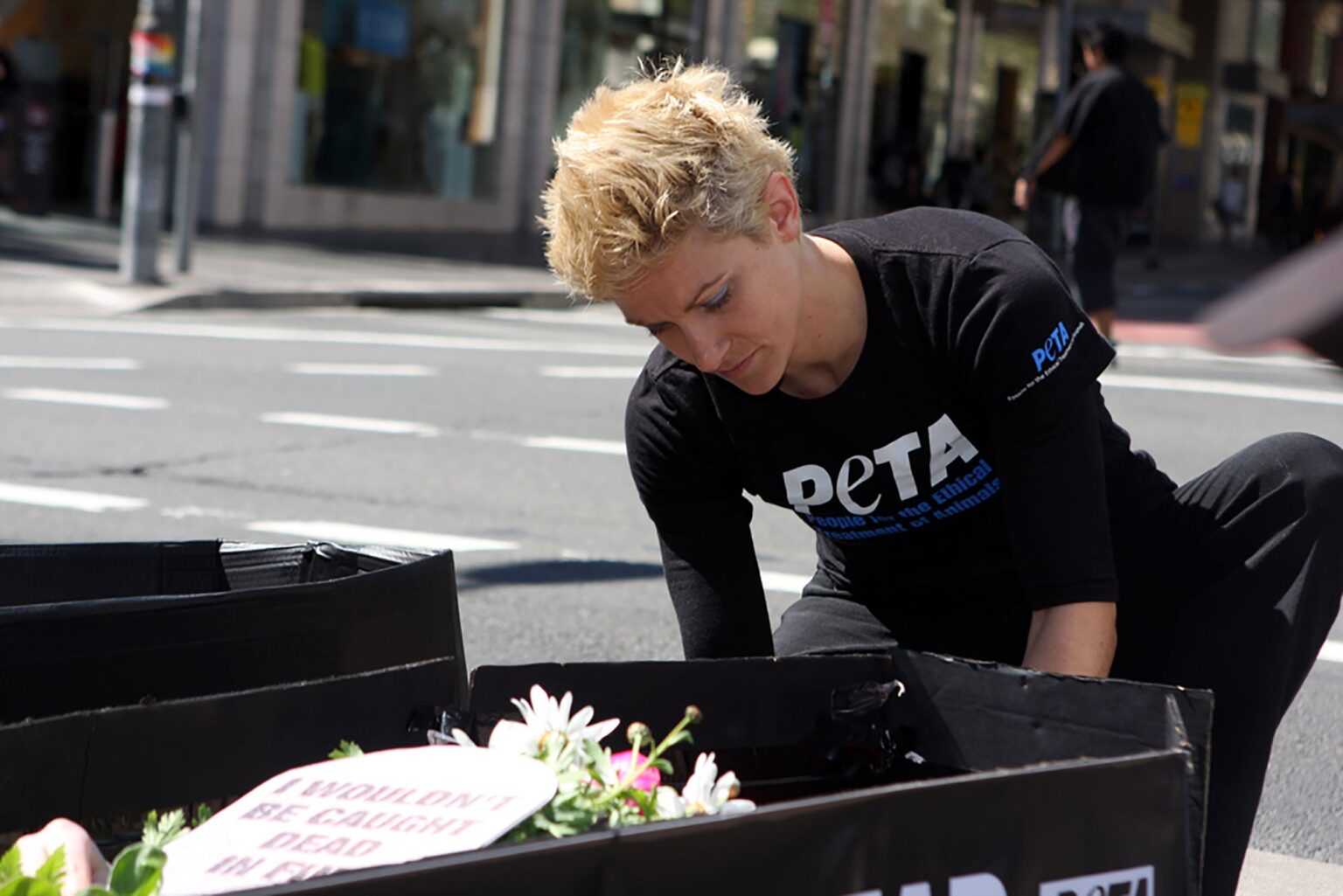Protests, demonstrations, and incidents of animal-rights organizations breaking into farms are on the rise. And while “undercover” videos are still a significant tactic, the strategies employed by activist groups are far more sophisticated than they were even a decade ago. This week, the Animal Agriculture Alliance has updated two of its reports to best reflect the current state of the vegan and animal activist movement in the U.S.
The Major Animal Activist Groups Web highlights the strategic, interconnected nature of the animal activist movement. Meanwhile, the Radical Vegan Activism report highlights trends in activism and illuminates the true intentions of key players in the movement.
According to the latest financial data, animal-rights advocacy groups have roughly $865 million in annual revenue for anti-meat and similar campaigns. The largest players continue to be Humane World for Animals (renamed in 2025 from The Humane Society of the United States), People for the Ethical Treatment of Animals, and the ASPCA.
The data also has shown that nearly one in four animal-rights related attacks target farmers and food workers, including 189 actions taken against agriculture in 2024 and 62 against food services. Documented actions include:
- 59 incidences of vandalism
- 43 cases of animal theft and/or release
- 31 trespasses
- 5 arson cases
“Animal activist group tactics are becoming more extreme in nature, putting farmers, ranchers, and food workers — not to mention food security — at risk,” said Hannah Thompson-Weeman, president and CEO of Animal Agriculture Alliance. “While some groups may outwardly appear more moderate in goals and beliefs, they are all connected by one key mission: to eliminate animal agriculture and take a nutrient-dense food group off of the menu.”

Activist groups are getting increasingly creative with how they opt to spend their money. For example, after FFA animals were killed recently in Texas during a dog attack, PETA reached out to administrators and offered to donate $5,000 to the school to help get a vegan agriculture program off the ground.
But the animal-rights movement is about more than money. Animal Agriculture Alliance looked at an increasing web of collaboration between the groups — like how Animal Activist Legal Defense Project is working to appeal a 2023 felony conviction of Wayne Hsiung, founder of Direct Action Everywhere and Simple Heart Initiative. New additions to the web include Animal Activist Legal Defense Project, The Brooks Institute, Legal Impact for Chickens, and Simple Heart Initiative.
However, not all is cozy in vegan land. It wasn’t long ago that PETA put some of its longtime vegan allies on blast, including the ASPCA and what was then HSUS, as well as Compassion in World Farming. PETA accused them of promoting “factory farming” operations that label their products as “certified” or “humane” and called for those organizations to step down from the board of directors of the Global Animal Partnership.
And HSUS, repeatedly rocked by scandal, changed its name earlier this year to Humane World for Animals, an apparent effort to distance itself from its questionable past. This included criticism against a longtime CEO and a settlement related to racketeering allegations.
Animal-rights groups have long attempted to undermine livestock producers and others in agriculture, but it’s important to note that animal rights, a philosophy that views animals as deserving of rights similar to those enjoyed by humans, is a different beast than animal welfare, which describes an animal’s state of being, including health, comfort, nourishment, expression of natural behaviors, and freedom from negative states. The animal agriculture community wholly supports animal welfare in this industry.


